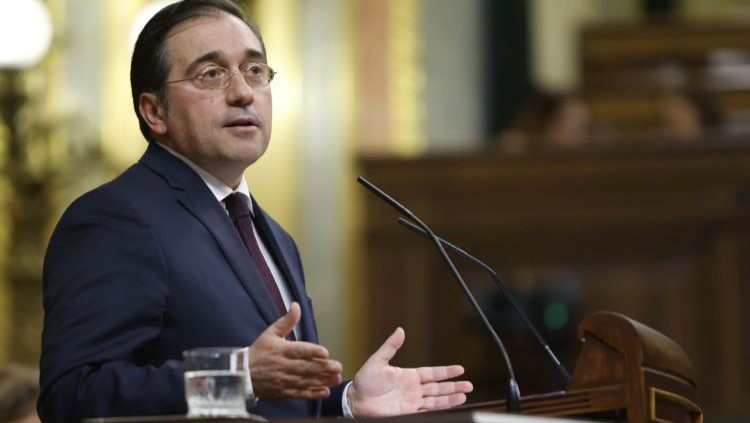Eduardo González
The Council of Ministers yesterday appointed two members of Pedro Sánchez’s previous cabinet to the front of two embassies before international organizations. Héctor Gómez, former Minister of Industry, Commerce and Tourism, will be the permanent representative before the UN, in New York, and Miquel Iceta, former Minister of Culture and Sports, will be the new representative of Spain before UNESCO.
With both appointments, the Government of Pedro Sánchez maintains the policy that developed in the last legislature of placing some former ministers at the head of Spanish Embassies abroad, mainly before multilateral organizations.
In the case of Héctor Gómez, he is the first permanent representative before the UN in New York of political origin, and therefore not diplomatic, since the arrival of democracy in Spain. Since Spain’s entry into the UN in 1955, during Francoism, only on one occasion in front of the Embassy has there been a person who did not belong to the Diplomatic Career: the journalist Manuel Aznar – the husband of the one who was president of the Government with him PP, José María Aznar-, having been an ambassador in several countries.
Gómez will occupy a position that has remained vacant since last June, when its previous holder, Agustín Santos Maraver, resigned from the representation of Spain in New York after the vice president and leader of the Sumar coalition, Yolanda Díaz, announced that the diplomat would be the ‘number two’ of his candidacy for the general elections on July 23. Santos is Sumar’s current Foreign Affairs spokesman in Congress.
Héctor Gómez was an autonomous MP in the Parliament of the Canary Islands until his appointment as general director of Turespaña in 2018. In the 2019 General Elections he was elected MP for Santa Cruz de Tenerife and since then he has been spokesperson for the Foreign Affairs Commission, head of delegation of the Conference on the Future of Europe and member of the Parliamentary Assembly of the Council of Europe. In 2021 he was appointed spokesperson for the Socialist Parliamentary Group in the Congress and later president of the Constitutional Commission. In March 2023, he was appointed Minister of Industry, Commerce and Tourism, replacing Reyes Maroto, and is currently a MP in the Parliament for Santa Cruz de Tenerife.
As far as Miquel Iceta is concerned, his actions in favor of UNESCO have certainly been accounted for during his term as minister of Culture and Sports between 2021 and 2023 (previously he was minister of Territorial Policy and Public Function in 2021, deputy in Parliament of Catalonia and member of the Cabinet of the Presidency of the Government, among other positions).
Specifically, Iceta was one of the four vice-presidents of the UNESCO World Conference on Cultural Policies and Sustainable Development, Mondiacult, held in 2022 in Mexico. Likewise, as Minister of Culture, he signed, together with the Minister of Foreign Affairs, José Manuel Albares, a request for Spain to be designated the host of the next UNESCO World Conference, scheduled for 2025.
Miquel Iceta, replaced as Minister of Culture by Ernest Urtasun, will take over as permanent representative of Spain to UNESCO from José Manuel Rodríguez Uribes, who was also Minister of Culture under Pedro Sánchez and who was appointed to this position in Paris in October of 2021. Iceta was, precisely, his replacement at the head of the Department of Culture.
Other former ministers also currently occupy Embassies abroad, such as the former head of Health Carmen Montón, in the Organization of American States (OAS), or the former Minister of Education and Government spokesperson, Isabel Celáa, in the Holy See.
On the other hand, as The Diplomat had anticipated, yesterday the Council of Ministers appointed Eva Granados, former spokesperson for the Socialist Parliamentary Group in the Senate and member of the Party of Socialists of Catalonia (PSC), for the position of State Secretary of International Cooperation, replacing Pilar Cancela, who yesterday was appointed State Secretary for Migration. The appointment of Eva Granados has been interpreted in political media as a way to compensate for the loss of weight of the Catalan socialists, after the departure of Iceta from the Government.







